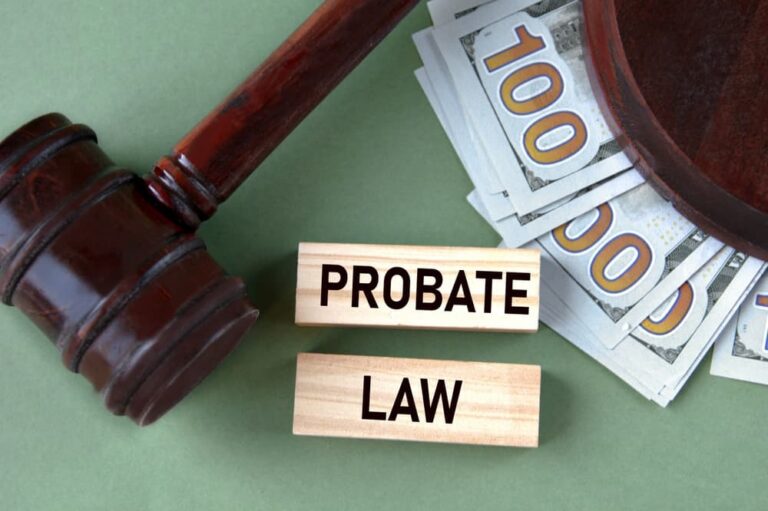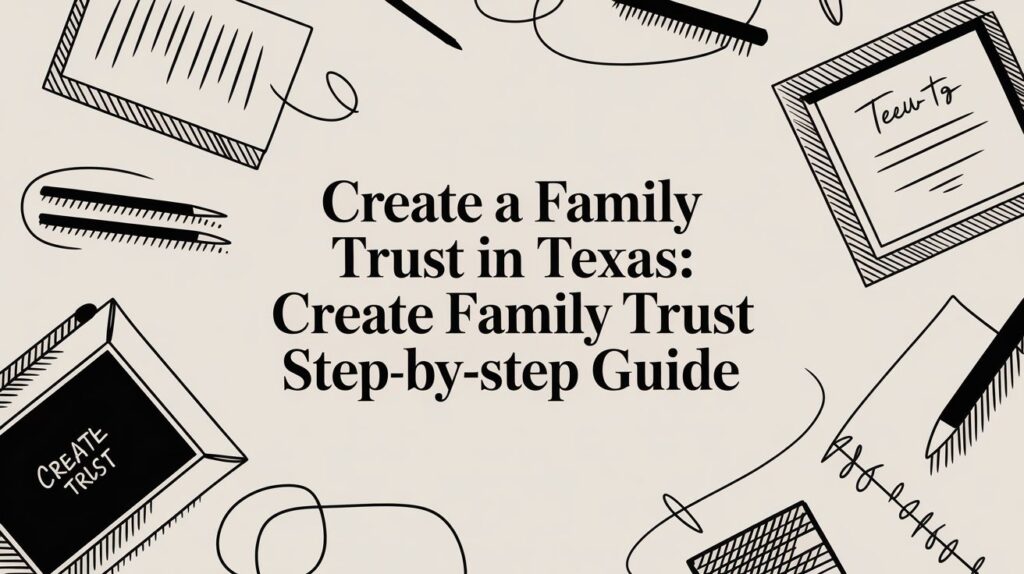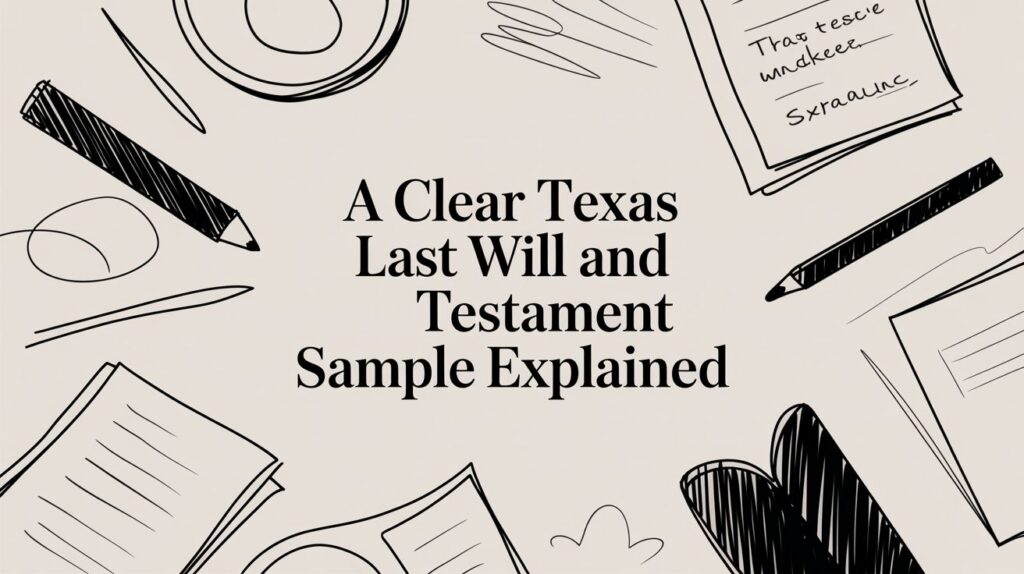When a loved one passes away, the last thing you expect is to be blindsided by a will that feels completely wrong. It's a gut-wrenching experience, leaving you to wonder if their final wishes were truly honored. If you're in this position, the big question on your mind is likely: can you actually contest a will in Texas and win?
The short answer is yes, absolutely. But a "win" isn't just about feeling like the outcome is unfair. Success in a Texas probate court hinges on having legally valid reasons—and the evidence to back them up. This guide will walk you through the process in plain English, so you understand your rights and what to expect.
The Ground Rules for a Will Contest in Texas
Discovering a will that doesn’t match what you know of your loved one’s intentions is more than just unsettling; it can feel like a profound injustice. Texas law provides a path to challenge that will, but it's a formal process with strict rules.
It's also important to know that a successful challenge doesn't always end in a dramatic courtroom battle. Very often, a strong case leads to a favorable settlement agreement reached during negotiation or mediation. This can save everyone involved a significant amount of time, money, and emotional energy. The ultimate goal is to correct a legal wrong, whether that means invalidating the entire will or ensuring the estate's assets are distributed fairly.
Two Things You Absolutely Must Have to Challenge a Will
Every single will contest in Texas is built on two foundational requirements. If you don't have both, your case won't get off the ground, no matter how unfair the situation seems.
- Legal Standing: This is a straightforward legal term for having the right to file the lawsuit. Under the Texas Estates Code, Title 2, Chapter 22, you must be an "interested person." That means you have a direct financial stake in the outcome of the estate. Typically, this includes heirs who would inherit if there was no will (like a spouse or children) or beneficiaries named in an older, valid will.
- Valid Grounds: You can't challenge a will just because you're disappointed with what you received. Your claim has to be based on legally recognized reasons. Texas law is very specific about this. For example, you might need to prove the person who made the will (the "testator") lacked mental capacity or was being pressured by someone else.
What Counts as a Valid Reason?
In Texas, the court starts with the assumption that a will is valid. The person challenging it has the "burden of proof," meaning it's your job to present clear and convincing evidence to prove otherwise.
Key Takeaway: A will contest isn't about asking a judge to rewrite a will to be more "fair." It's about proving the will is legally invalid because it wasn't the true, free, and final wish of the person who signed it.
To give you a better idea of what this looks like in practice, here are the most common legal reasons for contesting a will in Texas.
Common Grounds for Contesting a Will in Texas
Texas courts recognize several specific legal reasons for challenging a will's validity. This table breaks down what these grounds mean in plain English and provides a realistic scenario for each.
| Legal Ground | What It Means in Plain English | Example Scenario |
|---|---|---|
| Lack of Testamentary Capacity | The person making the will was not of sound mind and didn't understand what they were signing at that moment. | An elderly parent with advanced dementia signs a new will drafted by a caretaker, leaving everything to them, despite not recognizing their own children during that period. |
| Undue Influence | Someone manipulated or coerced the person into creating or changing their will to benefit the manipulator. | A relative isolates an aging family member, controls their finances, and constantly badgers them to change their will, threatening to abandon them if they refuse. |
| Improper Execution | The will wasn't signed or witnessed according to the strict legal requirements of Texas law. | The will was signed, but there were no witnesses present, or the witnesses signed it days later instead of at the same time as the testator, which violates the Texas Estates Code. |
| Fraud or Forgery | The person was tricked into signing the will, or their signature was forged altogether. | A con artist presents a document disguised as something else (like a power of attorney) for an elderly person to sign, when it's actually a will leaving everything to the fraudster. |
Understanding which of these grounds best fits your situation is the first, most critical step. From there, you can begin the process of gathering the right kind of evidence—from medical records to witness testimony—to build a strong case. For a deeper look into the timelines, you can read our guide on whether you can contest a will after probate in Texas.
Valid Legal Grounds for a Texas Will Contest
If you're thinking about contesting a will in Texas, the first thing to understand is that it's not about fairness. A court won't overturn a will just because you feel the distribution was unjust or not what you expected. Your challenge has to be built on solid legal ground. The Texas Estates Code is very clear about the specific reasons—or "grounds"—that can invalidate a will. Knowing these is the first step to figuring out if you even have a case.
Let's walk through the most common legal arguments used to challenge a will here in Texas. Each one requires a completely different kind of proof, and identifying the right one for your situation is absolutely critical.
Lack of Testamentary Capacity
This is probably the most frequent reason wills get contested. In simple terms, testamentary capacity means the person who made the will (the "testator") was of "sound mind" at the very moment they put pen to paper.
Now, Texas law doesn't demand perfection. The testator could have been in poor health or had a spotty memory and still have had capacity. The legal standard is very specific. They must have understood:
- The action they were taking—making a will—and what it would do.
- A general sense of what property they owned.
- Who their close family members were (the "natural objects of their bounty").
- How all these pieces fit together into a coherent plan to distribute their assets.
A diagnosis like dementia doesn't automatically mean a will is invalid. The entire case hinges on proving the testator lacked this understanding at the time they signed the will. This is often a tough hill to climb, and it usually involves piecing together medical records, prescription lists, and powerful testimony from doctors, caregivers, or family who saw their mental state firsthand.
Undue Influence
This argument claims the testator wasn't acting freely. Instead, someone else exerted so much pressure, manipulation, or coercion that it completely overpowered the testator's own wishes. In essence, the will reflects the desires of the influencer, not the person who signed it.
This is more than just nagging or trying to persuade someone. Undue influence is often a quiet, destructive process where a vulnerable person is isolated from their family and support network, making them dependent on the influencer.
Key Insight: Courts are looking for a pattern of manipulative behavior that shows the testator's will was essentially broken. A classic red flag is a last-minute will change that dramatically benefits a new caregiver who has been keeping family members away.
Proving this is tricky and almost always relies on circumstantial evidence. Think testimony from friends who noticed the isolation, financial records showing an unhealthy dependence, or even text messages and emails that reveal a controlling relationship.
Improper Execution
Texas has incredibly strict, formal rules about how a will must be signed and witnessed to be legal. These formalities, found in Title 2 of the Texas Estates Code, exist to prevent fraud and confirm the will is genuine. If these technical steps aren't followed to the letter, the will can be thrown out.
For a standard will in Texas, Section 251.051 of the Estates Code demands that:
- The will must be in writing.
- It has to be signed by the testator (or someone else signing for them, in their presence and at their direction).
- It must be signed in the testator's presence by two credible witnesses, both at least 14 years old.
If any of these things didn't happen—maybe there was only one witness, or the witnesses signed it a week later at their own homes—the will could be declared invalid. We cover this in much more detail in our guide on what invalidates a will in Texas.
This infographic breaks down how different grounds for a will contest demand different kinds of evidence.
As you can see, the path to proving your case is dictated entirely by your legal argument, whether it’s built on medical records, witness accounts, or expert forensic analysis.
Fraud or Forgery
Finally, a will can be challenged on the basis of outright fraud or forgery. While less common, these are serious allegations of misconduct.
- Fraud is when the testator was intentionally tricked into signing the will. A common example is telling an elderly person they are signing a power of attorney when, in reality, it's a will.
- Forgery is exactly what it sounds like: the signature on the will isn't the testator's. Proving this almost always requires hiring a forensic handwriting expert to analyze the signature and testify in court.
While will contests are more frequent in the U.S. than in other countries, they still account for a small percentage of all probate cases—somewhere between 0.25% and 3%. But don't let that number discourage you. Many legitimate disputes are settled out of court long before a trial. This means that if you have a strong case built on one of these legal grounds, your chances of reaching a favorable outcome are often much better than the trial statistics suggest.
How Does a Texas Will Contest Actually Work?
When you’re staring at a will that just doesn’t feel right, the idea of challenging it in court can be terrifying. The legal system is confusing enough without adding the stress of grief and family conflict. So, let's pull back the curtain and walk through the process, step by step, so you know exactly what to expect on this journey.
We'll use a realistic scenario to show how these legal stages unfold for a real family, turning abstract legal jargon into a story you can follow.
The First Step: Your Consultation
Before any legal papers are filed, it all starts with a conversation. Your first move is to sit down with a probate litigation attorney. This initial meeting is your chance to tell your story, share your suspicions, and get an honest, professional opinion on whether you have a legitimate case.
When you're dealing with something this important, finding the right legal partner is more than half the battle. You need someone who not only knows the law inside and out but who also listens with genuine empathy.
To get the most out of that first meeting, pull together any documents you can find. It makes a world of difference.
- A copy of the will you're questioning.
- Copies of any older wills, if you can get your hands on them.
- Names and contact info for people who might be witnesses (think family, friends, doctors, or caregivers).
- A simple timeline of key events that happened around the time the will was signed.
Doing this homework upfront helps your lawyer quickly gauge the strength of your claim and map out the best way forward.
Kicking Off the Lawsuit
If your attorney believes you have solid grounds to proceed, the next move is to file the will contest in the proper Texas probate court. This is done by filing a document called a "Petition to Contest Will," which officially gets the ball rolling.
This petition lays out the basics: who you are, how you're related to the person who passed away (which gives you "standing" to sue), and the specific legal reasons you're challenging the will—like undue influence or lack of testamentary capacity.
Once it's filed, the person defending the will (usually the executor or the main beneficiary) gets formally notified and has to file a response. At that moment, the legal fight is officially on.
The Discovery Phase: Uncovering the Truth
With the lawsuit filed, both sides dive into a critical stage called discovery. This is the formal, court-supervised process of gathering evidence. Think of it as the investigation, where all the facts supporting your claim are brought into the light.
During discovery, your attorney has several tools at their disposal:
- Written Discovery: This involves sending formal questions (Interrogatories) and requests for documents (Requests for Production) to the other party. It’s how you can get your hands on crucial evidence like medical records, bank statements, emails, and text messages related to the will.
- Depositions: This is where things get serious. Your lawyer will question key people under oath, with a court reporter transcribing every word. This includes the person who benefited from the new will, the witnesses who signed it, and even the lawyer who drafted it. Their testimony is vital for locking down everyone's story long before you see a courtroom.
This phase can take several months, but it’s where the foundation of your case is built. The evidence you unearth here will either make your case or break it.
Key Takeaway: Discovery is often where a will contest is won or lost. The documents and sworn testimony you collect are the ammunition you need to either negotiate a powerful settlement or convince a judge at trial.
A Realistic Scenario: The Sanchez Siblings
Let's put this into perspective. Imagine two siblings, Maria and Carlos Sanchez. They are heartbroken and confused when they learn their father's will leaves his entire estate—including the family home he promised them—to a neighbor he'd only known for six months. For years, their father's estate plan, documented in previous wills, was to split everything between them. They have a strong feeling the neighbor isolated their father during his final illness and pressured him into changing the will.
Their attorney files a contest based on undue influence. During the discovery phase, they uncover a mountain of evidence:
- Phone records showing the neighbor consistently blocked the siblings' calls to their father.
- Bank statements revealing large, unexplained cash withdrawals that started right after the neighbor came into the picture.
- Deposition testimony from a longtime caregiver, who the neighbor fired, explaining how she saw their father become increasingly fearful, confused, and dependent on the neighbor.
This is powerful stuff. Each piece of evidence, gathered methodically during discovery, helps paint a clear picture that their father's final will wasn't truly his own.
Mediation: The Path to a Resolution
Before a case ever goes to a full-blown trial, Texas courts almost always require both sides to try mediation. This is a confidential meeting where a neutral third-party mediator works to help everyone find common ground and reach a settlement.
Mediation is incredibly effective. With all the cards on the table from discovery, both sides have a realistic view of their case's strengths and weaknesses. It's a chance to end the fight without the crushing emotional and financial toll of a trial.
For the Sanchez siblings, the strong evidence they gathered would give them a huge advantage at the mediation table. Faced with the facts, the neighbor might agree to a fair settlement, ensuring Maria and Carlos receive their rightful inheritance while avoiding a painful and public court battle.
Gathering the Evidence Needed to Win Your Case
A successful will contest is built on a foundation of solid evidence, not just suspicion or hurt feelings. Once you and your attorney have identified the right legal grounds for your challenge, the focus shifts entirely to proving it. This is where cases are won and lost.
Think of it like building a house. You can't start with the roof; you need a strong, concrete foundation. In Probate Litigation, that foundation is made of documents, records, and credible testimony. Organizing this information early on can dramatically strengthen your position.
Medical and Financial Documents Are Your Best Friends
When challenging a will based on lack of testamentary capacity or undue influence, the most powerful evidence often comes from the paper trail left behind. These objective records can paint a vivid, undeniable picture for the court.
Your attorney will use the discovery process to formally request these documents, but knowing what to look for from the beginning is a huge advantage. Start gathering what you can and making notes about what might exist.
Key Documents to Look For:
- Medical Records: Physician’s notes, hospital admission records, and neuropsychological evaluations can establish a clear timeline of cognitive decline.
- Prescription History: A list of medications can show treatments for conditions that directly affect memory and judgment, like Alzheimer's or dementia.
- Financial Statements: Bank and brokerage accounts are treasure troves. Look for unusual activity, such as large withdrawals, sudden changes to beneficiaries, or unexplained transfers to a new caregiver.
- Legal and Estate Planning Files: Your attorney can subpoena the files of the lawyer who drafted the questionable will. Their notes can sometimes reveal the testator's state of mind or the heavy involvement of a potential influencer.
The Power of Human Testimony
While documents are crucial, a will contest often comes down to the stories people tell. Testimony from neutral, third-party witnesses who have no financial stake in the outcome can be incredibly persuasive.
Think beyond immediate family. Who saw your loved one regularly in the months or years before the will was changed? These individuals can provide an unbiased perspective on the testator's mental state and relationships.
Potential Witnesses to Consider:
- Caregivers and Healthcare Staff: Nurses, home health aides, and hospice workers often have detailed, daily observations of a person's lucidity and can spot controlling behavior from a mile away.
- Neighbors and Friends: A longtime friend or neighbor might have noticed a sudden change in behavior, isolation from family, or a new person taking complete control of their life.
- Financial Advisors or Bankers: These professionals might be able to testify about the testator’s confusion regarding their finances or pressure they observed from another person during meetings.
The success of a will challenge hinges entirely on the strength of this collected evidence. This is a universal principle in estate law. For instance, research from other common law jurisdictions shows a surprising number of estate challenges succeed in changing the will's distribution, with most claims coming from immediate family. You can discover more insights about these inheritance claims to get a broader perspective.
Key Insight: Don’t underestimate the value of personal communications. Emails, text messages, and voicemails can create a powerful timeline. A string of texts from an influencer demanding money or isolating the testator from family can directly support a claim of undue influence.
Organizing Your Evidence for Maximum Impact
Once you start collecting information, it’s vital to keep it organized. Create a simple timeline of events, noting when key conversations happened, when you noticed changes in your loved one's health, and when the suspicious will was signed.
Even before hiring an attorney, you can begin to structure your case. This proactive approach not only helps your legal team hit the ground running but also empowers you with a clearer understanding of the strengths and weaknesses of your claim. By focusing on concrete proof, you move from feeling that something is wrong to being able to prove it.
What Every Family Should Remember About Contesting a Will
Challenging a will is never easy. It's an emotional, legally draining journey that can test any family. After walking through the grounds, the process, and the evidence you'll need, let's boil it all down to the most important points for anyone in Texas considering this path.
The single most critical thing to understand is that winning a will contest takes more than just a feeling of being wronged. While your sense of injustice is valid, a Texas probate court operates on two things: valid legal grounds and cold, hard evidence.
The Clock Is Ticking—And It’s Not on Your Side
One of the toughest pills to swallow in probate litigation is the strict deadline. The Texas Estates Code puts a firm statute of limitations in place, and you absolutely cannot afford to ignore it.
- In almost every situation, you have just two years from the day a will is officially admitted to probate to file your contest.
- Once that two-year window slams shut, your right to challenge the will vanishes forever. It doesn't matter how strong your case is.
This is why you have to act fast. Hesitating could cost you the chance to protect what's rightfully yours. The best thing you can do is talk to a lawyer the moment you suspect something is wrong.
Key Insight: A will contest is a marathon, not a sprint. It takes a huge emotional and financial toll. You need to partner with an experienced legal team that brings both sharp legal skills and genuine compassion to the table. It's the only way to get through the challenges ahead.
While your fight will be here in Texas, it's interesting to see how these disputes play out elsewhere. Research from Australia, for instance, shows a surprising 74% of estate challenges succeed in changing how the will distributes assets, and over 80% of those claims come from immediate family members. You can discover more insights about these inheritance claims to get a broader perspective on these family battles.
Your Next Steps
At the end of the day, successfully contesting a will isn’t just about winning—it’s about restoring your loved one's true wishes. That takes a solid strategy built on strong legal arguments and proof you’ve carefully gathered. The process is a maze, but you don't have to navigate it by yourself.
It also helps to understand the bigger picture of how estates are handled. We encourage you to learn more about the general Texas Probate Process and the basics of Wills & Trusts. Arming yourself with knowledge is the best preparation for the road ahead.
Answering Your Questions About Will Contests
After taking in this much information, it’s only natural to have a few questions still buzzing around. Contesting a will is a complex journey, and every family’s situation brings its own unique twists and turns. To help you find some clarity, we've put together answers to the most common questions we hear from families across Texas.
Our goal here is simple: to clear up any lingering confusion and give you the confidence you need to figure out what to do next. Each answer is grounded in Texas law but explained in a way that’s easy to follow.
How Much Does It Cost to Contest a Will in Texas?
The cost can vary, but one of the biggest myths is that you need a pile of cash upfront. Many experienced probate litigation attorneys, including our firm, handle these sensitive cases on a contingency fee basis.
This arrangement means you don't pay any attorney's fees unless we win your case, either through a settlement or a court judgment. We believe in total transparency, so we'll always walk you through any other potential costs—like court filing fees or expenses for expert witnesses—during your free consultation. There are never any surprises. For a deeper dive, our guide on who pays for legal costs when contesting a will is an excellent resource.
Can I Contest a Will if I Was Completely Left Out?
Absolutely. Being disinherited is one of the most common reasons people start looking into a will contest. Under the Texas Estates Code, the first hurdle is proving you are an "interested person," which just means you have a direct financial stake in the outcome.
This group typically includes:
- Spouses and children who would have inherited if there were no will (known as "heirs at law").
- Beneficiaries who were named in a previous, valid will.
If you fall into one of these categories, you have the legal right, or "standing," to file a challenge. But remember, having standing isn't enough. Your case still has to be built on solid legal grounds like undue influence, lack of capacity, or fraud.
What if the Will Has a No-Contest Clause?
It’s definitely intimidating to find an "in terrorem" or no-contest clause in a will. This language is put there for one reason: to discourage challenges by threatening that anyone who contests the will and loses forfeits whatever inheritance they were supposed to get.
Key Insight: In Texas, these clauses are not airtight. A no-contest clause is unenforceable if you bring your challenge in "good faith" and with "just cause." If you and your attorney have strong evidence to back up your claim, this clause shouldn't stop you from pursuing justice.
An experienced probate attorney can review your evidence to see if your case meets this standard, letting you move forward without the fear of forfeiture.
How Long Do I Have to Contest a Will in Texas?
This is where the clock is truly ticking. The deadline for filing a will contest is extremely strict. In almost all situations, you must file your lawsuit within two years from the date the will is officially admitted to probate by the court.
There are very few, incredibly narrow exceptions to this two-year statute of limitations, which is why acting quickly is so critical. If you have any concerns about a will, it's vital to seek legal advice immediately. Waiting too long could mean losing your rights for good. Beyond wills, families often face challenges related to Guardianship for loved ones or have questions about assets held in other ways. For guidance on handling inherited property, like selling a house in a trust after death, having the right resources makes all the difference.
If you’re facing probate in Texas, our team can help guide you through every step — from filing to final distribution. Schedule your free consultation today.
"""







